Post
A catch
Save a catch to start your fishing logbook. You will be able to to share it with the community if yo want!
A fishing trip
Post an ad to go fishing with other fishermen
Save a catch to start your fishing logbook. You will be able to to share it with the community if yo want!
Post an ad to go fishing with other fishermen
Share a thought, a question with the community
My favorite cities
×Keep your rods ready for Maricopa in Kern. The fishing forecast is currently 3. The most caught fishes here are the spotted seatrout, the pallid sturgeon, the moapa dace and the american shad. Come try the most famous fishing techniques like the trolling, trolling for mackerel, deep-sea fishing or angling - using floats.
Our fishing forecast of Maricopa indicates the best time to go fishing in this city.
The Spotted Seatrout
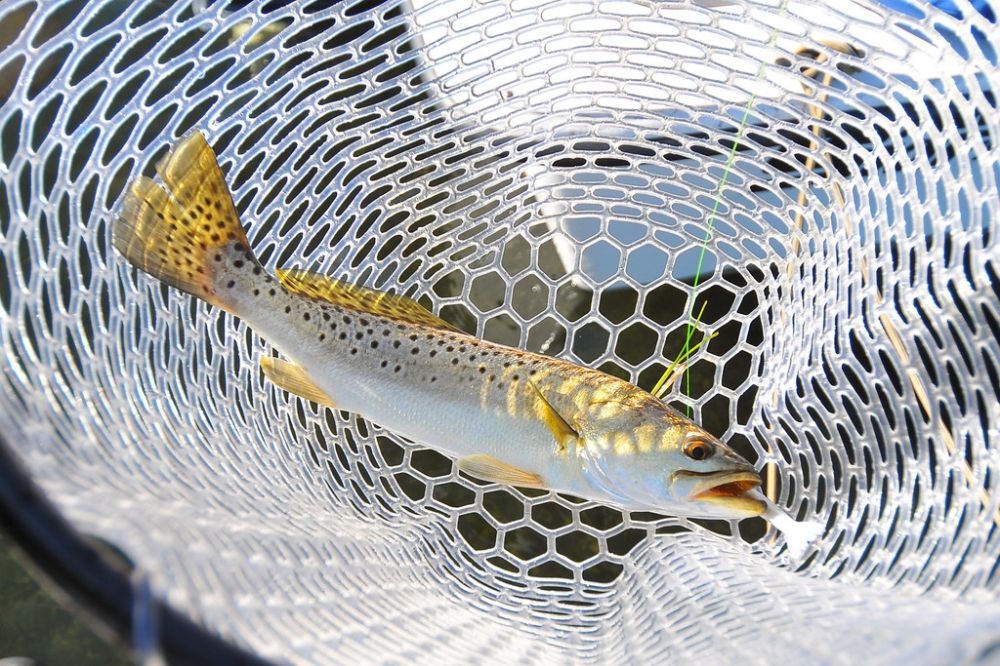
The Spotted Seatrout belongs to the Scianidae family. Spotted sea trout reach a maximum length of 100 cm and a maximum weight of 7.9 kg. The lifespan of this species is 8 to 10 years. It breeds from March to September. It can be fished all year round. The spotted seatrout has an elongated, somewhat compressed body with a slightly elevated back. The head is long with a pointed snout and a large oblique mouth. The dorsal fin is continuous or slightly separated. The fins are flake-free, with the exception of 1 to 10 rows of small scales at the base of the dorsal and anal fins. The lateral line extends over the tail, characteristic of all Sciaenidae. The body of the spotted seatrout is silvery with irregular black spots on the upper half, from the dorsal fin to the caudal fin. The dorsal side is dark grey with bluish reflections while the ventral side is silvery to white. The dorsal fin is dark, while the others are yellowish.
The Spotted Seatrout is a famous fish you can catch in Maricopa.The Pallid Sturgeon
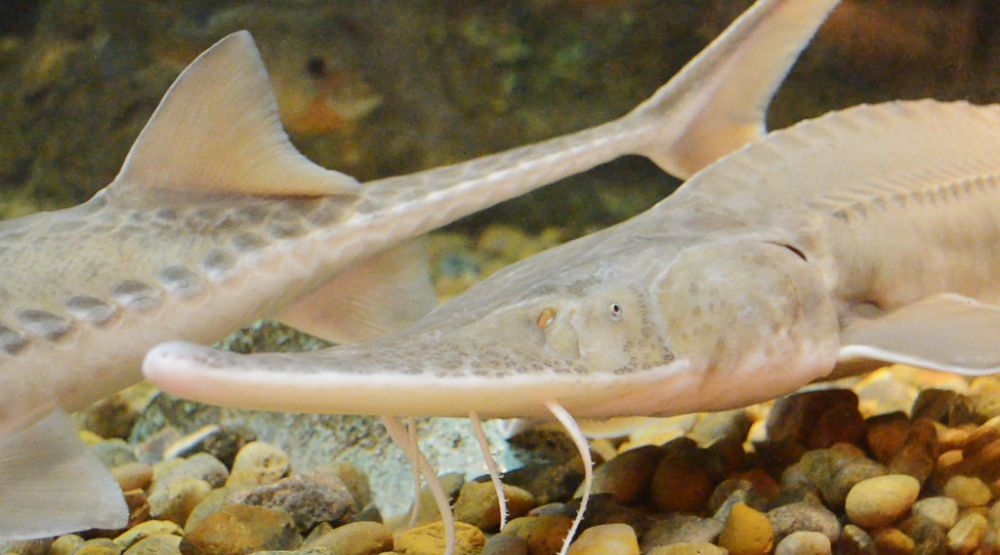
The Pallid Sturgeon belongs to the Acipenseridae family. it measures between 70 and 150 cm long and 39 kg in adulthood. The Pallid Sturgeon takes 15 years to reach maturity, and can live for more than a century. it breeds from May to July. Considered as endangered, it cannot be caught. Like the other Acipenseridae, it is considered as a "living fossil". The Pallid Sturgeon has a characteristic appearance that makes it to be qualified as "primitive" or "dinosaur". It has a pale color, especially in adults who fade with time, with a greyish back and sides. Its caudal fin is heterocercal, with an upper lobe more developed than the lower lobe. Like other sturgeons, the Pallid Sturgeon has no calcified scales or bones, unlike more recent fish species. It has a cartilaginous skeleton with five rows of thick patches that extend along its sides, belly, back and most of its head. These plates are covered by the skin and protect the animal. This cartilage also extends to the back of the fish’s body, between the dorsal fin and the tail. The mouth starts well set back from the tip of the head. Because it has no teeth, it uses this stretchy mouth to suck small fish, shellfish and other foods from the bottom of the river. Like all sturgeons, it has four barbells. We think they have a sensory role in detecting food.
The Pallid Sturgeon is a famous fish you can catch in Maricopa.The Moapa Dace
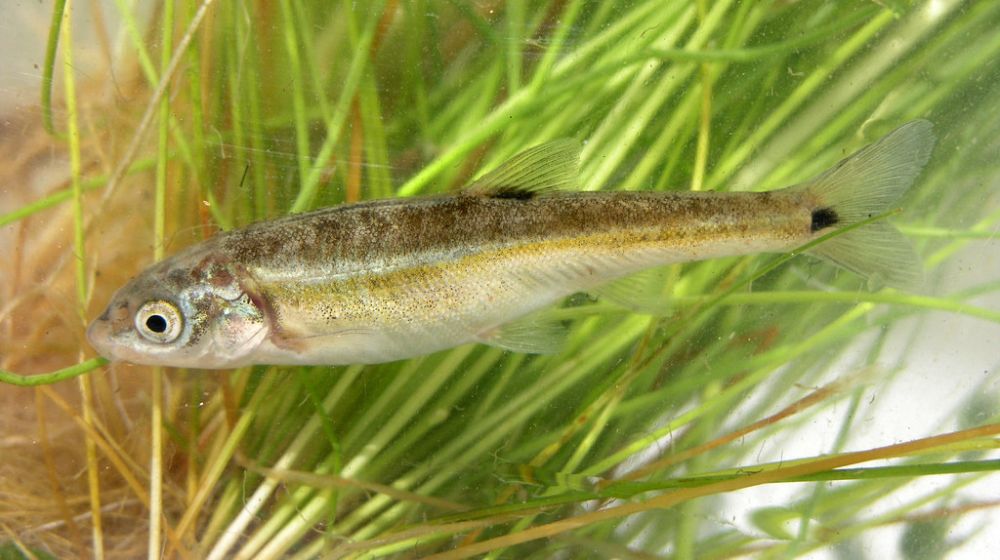
The Moapa Dace belongs to the Cyprinidae family. It has an average size of 10 to 13 cm. It has a lifespan of 4 years old. It may spawn throughout the year with a maximum activity in spring. It is an endangered species so the fishing is prohibited. It is a small fish with a short head, a terminal mouth and thick, semiconducting lips. The dorsal fin begins above or slightly behind the insertion of the pelvic fins and the caudal fin is forked. The dorsal color is dark, the sides are brownish with slightly golden areas and the ventral color is light. There is a dark spot on the tail and a dark line on each side of the body. The scales are small and deeply inlaid and the skin looks like leather. Some dace species have a small maxillary barbell, but not the species.
The Moapa Dace is a famous fish you can catch in Maricopa.The American Shad
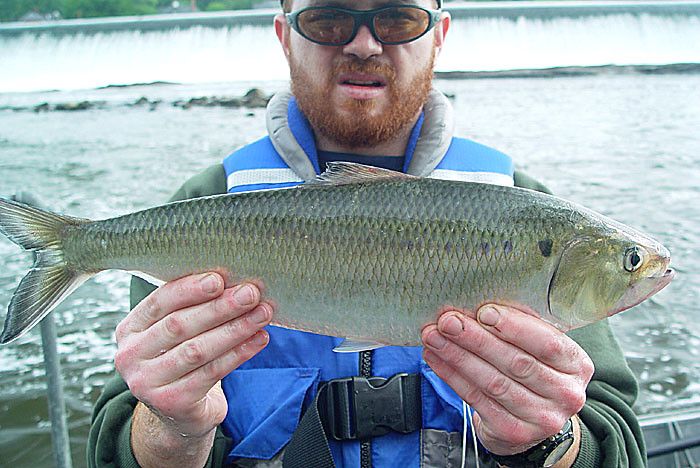
The American Shad belongs to the Clupeidae family. With an average of 38 cm, adult specimens can measure up to 76 cm and weigh between 0.9 and 1.4 kg. It can live up to 13 years old. Egg laying takes place in May, June or July. On average, the female lays 140,000 eggs, but can reach 600,000 eggs. It is fished in the spring. The American shad is characterized by its slender, high and very flattened body. The species has a very forked caudal fin and a low, elongated anal fin. It has no lateral line or adipose fin. Its color is silvery with a blue or blue-green sheen on the back and bright silver flanks. When entering fresh water for reproduction, the pigmentation may become darker, taking on a tan or copper hue, turning red for the head and belly parts. A black spot is visible near the top edge of the lid, sometimes followed by smaller spots. Its lower jaw fits into a notch in its upper jaw. It can also be recognized by its large scales that are easily detached. The ventral surface of the American shad is thin with saw tooth scales. With regard to internal characteristics, it has teeth in the premaxillary and lower jaw, a silver peritoneum and, between 53 and 59 vertebrae.
The American Shad is a famous fish you can catch in Maricopa.The Walleye
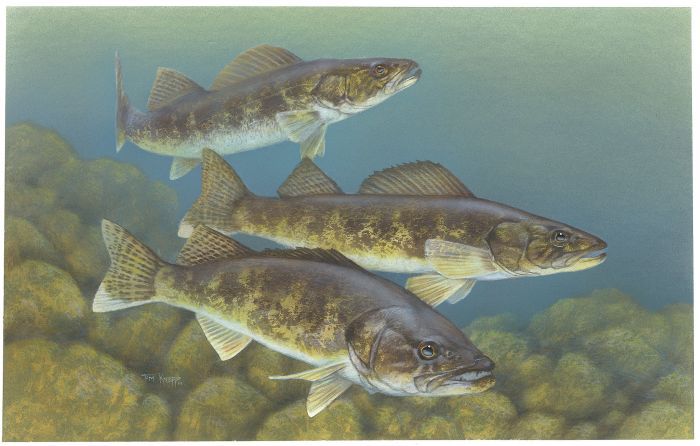
The Walleye belongs to the Percidae family. They can reach 107 cm in length and reach 11 kg. The average weight is about 5 kg. Walleye can live 10 to 20 years. They spawn in the spring or early summer. It can be fished from May to March. Walleye are freshwater fish of the Percidae family, a popular and commonly supplied game fish. The body is long and thin, mainly golden and olive colored, with a white belly. The back is crossed with five or more black stripes. They have two dorsal fins - one spiny and one with softened rays. The mouth of the walleye is wide, with sharp teeth, and its low-light vision helps it to find its prey at night.
The Walleye is a famous fish you can catch in Maricopa.Our fishing forecast of Maricopa indicates the best time to go fishing in this city.
Our fishing forecast of Maricopa indicates the best time to go fishing in this city.
Our fishing forecast of Maricopa indicates the best time to go fishing in this city.
